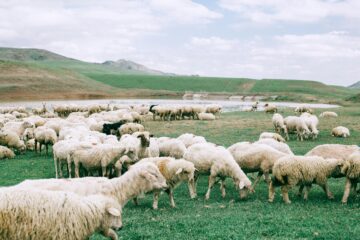Safeguarding the vital cross-border agriculture trade on the island of Ireland will require real solutions and compromise in the Brexit negotiations, according to IFA (Irish Farmers’ Association) President Joe Healy.
Speaking from the Virginia Dairy Show on Wednesday, Healy said this issue is of deep concern to farmers in the border region.
Each year, thousands of animals and huge volumes of agricultural produce, worth €2.2 billion, move across the border for further finishing or for processing, as part of a highly-integrated supply chain, according to the IFA.
These trading links have built up over many years and are imperative for farmers and processors on both sides of the border, it was stressed.
Healy said the UK’s insistence on leaving the Customs Union and pursuing an independent trade policy, amount to a hard Brexit and would have a negative impact for Irish agriculture and the value of our agri-food exports.
The president said it is positive that the UK has put forward the principle that they wish to avoid a border in either the UK or Ireland for any purpose, including customs or agri-food checks.
However, he noted, it is difficult to see how this could be achieved in practice, as cross-border trade in agricultural produce encompasses vital issues such as food safety and animal health.
“If the UK insists on pursuing its own free trade agreements, two divergent regimes would have to operate on the island and it is impossible to see how border checks could be avoided.
“The UK will have to compromise on its future trade ambitions with third countries in the area of agricultural and food products,” he added.
Healy said: “Ireland is the EU economy that will be the most impacted by a hard Brexit, and farming and agri-food will be the most impacted sector.
“Ireland’s agri-food sector has a high dependence on the UK market, with 40{b28040870e2dde01f25bc5b483275391226143b34751c4bb8f1feeecaec925a1} of exports destined for the UK market annually.”
The president stressed: “The option of a ‘customs partnership’ between the EU and UK is simply not an acceptable outcome for the agriculture and food sector, as even under this arrangement, the UK would still be committed to pursuing its own trade policy for imports into the UK.”
“The potential displacement of Irish food exports from the UK market will in turn destabilise the EU market balance.”
The president reiterated the terms needed in a balanced free-trade agreement that must be negotiated with the UK.



